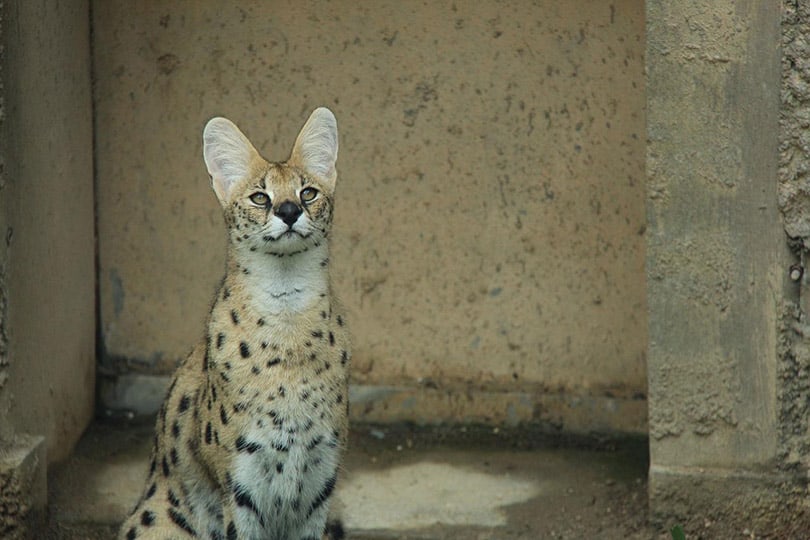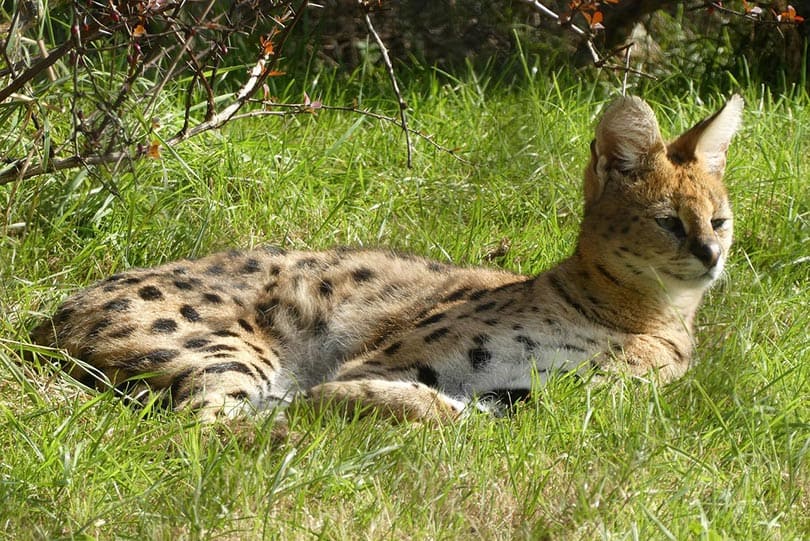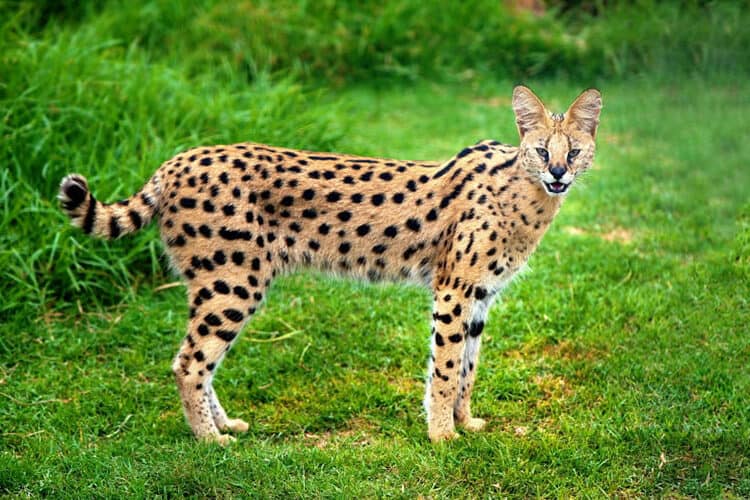Serval cats are wild cats native to the African savannah. Their exotic looks and comparable size to domestic cats make them appealing as pets. But are they safe? Serval cats are wild cats, which means they are considered dangerous. While they aren’t as large as a cheetah or a leopard, they have the precision, strength, and speed of a wild hunter, which can pose a threat to humans and other animals.
Are Servals Dangerous to Humans?

It isn’t unheard of for Serval cats to show affection to their owners. So, how can they be considered dangerous but also affectionate house pets? Serval cats aren’t usually a direct threat to their owners or other humans. The problem is their natural hunting instincts, which can be activated under certain circumstances and pose a danger.
Servals can cause deadly wounds. They have a bite force of 172 Newtons, compared to a feral domestic cat that has a bite force of 56 Newtons. These cats are also incredibly fast. They can run up to 50 miles per hour (80 km/h) and knock out a bird with a single swat.
The Serval cat’s success rate in capturing prey is about 90%. This is exceptionally high. For comparison’s sake, the success rate of a tiger is only about 10%. The precision and accuracy of a Serval earn them the title of best hunter out of all exotic cat species.
The physical characteristics of the Serval cat also make them dangerous animals. They can detect prey from miles away with their pointy, long ears. They are even capable of hearing prey that burrows underground or underwater. The Serval uses their long, sharp claws to kill, with a single scratch often being deep enough to cause fatality.
A strong prey drive combined with strength and agility means a Serval cat could easily hurt a human.
Are Serval Cats Aggressive?
Serval cats aren’t hostile or combative, so they are not usually considered to be aggressive. These cats are extremely territorial, though, and tend to engage in rough play.
The Serval’s territorial instincts mean that they urine mark anything and everything that they consider to be theirs. If they feel that their territory is being threatened, these cats will claw, lunge, or pounce on the perceived threat.
In the wild, aggression between Serval cats is rare. They avoid each other and don’t fight, most often engaging in dominance displays like placing a paw on another cat’s chest.
Aggressive behavior is most often seen in Serval cats when engaging in play. Even when playing with a human, they may claw, bite, or hiss. While the behavior isn’t intentionally hostile, it can make it dangerous to interact with these cats.
Do Serval Cats Make Good Pets?

While some people do keep Servals in captivity, they are exceptionally difficult to care for and don’t make good house pets. They aren’t built to live alongside humans and have difficulty coping outside of their natural habitat. They are also hard to keep with other animals.
Here are a few of the reasons that Servals don’t make good pets:
- They need a large space for exploration and play.
- Servals are highly skilled at escaping enclosed spaces.
- Servals are territorial and will display aggression when threatened.
- The life expectancy of this cat is 19 years.
Is Owning a Serval Cat Legal?
Laws and bans on exotic pets vary according to location. In the United States, the law varies by state. Serval cats are non-controlled exotic animals. They are not legal in all states, and in states where it is legal to own one, a permit is usually required.
Conclusion
Serval cats are incredibly powerful wild cats that can be dangerous. They have unique needs that make it difficult to keep one as a pet. Servals have a strong prey drive, are territorial, and can become aggressive during play. Their wild instincts make them best suited to life as wild cats on the African savannah.
Featured Image Credit: Howard Klaaste, Shutterstock














